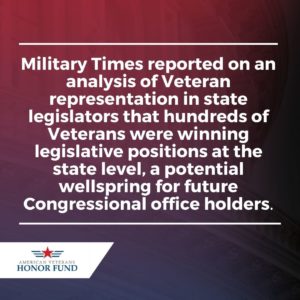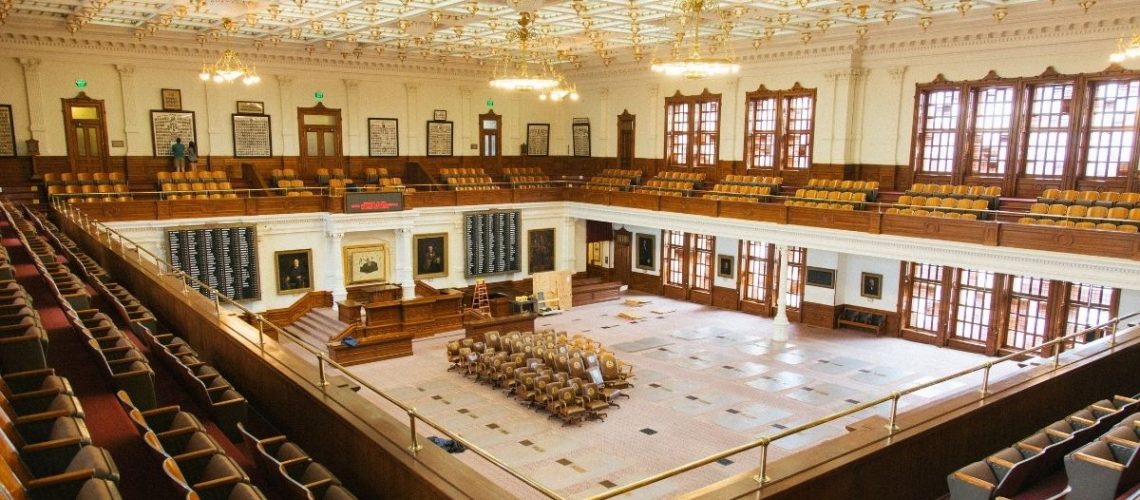At American Veterans Honor Fund, the core of our mission is to not only raise awareness on the issues which impact our nation’s Veterans, but to facilitate the inclusion of our Vets in our nation’s governance. Veterans serving in government is a net positive for our nation’s politics and invigorates the principle of service in a government “Of the people, by the people, for the people.”
Yet as we have covered in length in other blog posts, the relative share of Veteran occupation of Congressional seats at the federal level has been steadily declining over recent decades. As we have noted previously, there are many factors which may be contributing to this, but at the core of this decline is the very nature of a volunteer force which results in fewer Americans having military experience overall. At the federal level, we are encouraged to see that as the post 9/11 era progresses, a new generation of Veterans is rising in the ranks of Congress with each new election cycle.
And it appears that this momentum is being shared at the state level, as well.
Back in 2016, Military Times reported on an analysis of Veteran representation in state legislators and found that hundreds of Veterans were winning legislative positions at the state level, a potential wellspring for future Congressional office holders:
“The study is the first comprehensive look at veterans’ political involvement on a state level and indicates that despite years of declining veteran representation in Congress, the pipeline of potential candidates for national office may be refilling. New research from the American Enterprise Institute found that roughly one in seven lawmakers serving in state legislatures is a veteran, totaling more than 1,000 former military members nationwide.“

At the time of this study, it was found that approximately 14 percent of the 7,400 state-elected legislators were Veterans. As noted by the Military Times, roughly 9 percent of the population consisted of Veterans in 2016.
In the run-up to the 2020 election season, the American Enterprise Institute put together a similar snapshot of Veterans serving in state legislatures. The results noted that the number of Veterans serving in state legislatures declined from 2016 to 2018, resulting in a two percent decline. There were, however, silver linings. One of which being the increased representation of post 9/11 Vets:
“Not depicted here but equally of interest, in analyzing the nearly 1,000 veterans currently serving in state legislatures, we found that the percentage of post-9/11 veterans has increased by nearly 10 percent since 2016, with roughly 29 percent of veteran legislators now part of that cohort (though of that percentage, only 12 percent served exclusively after September 11, 2001).“
It appears that as more Afghanistan and Global War on Terror Veterans begin to phase out of military careers, that they will find increasing success running for office. And as more run, the number of Veterans serving at both the state and federal level are only likely to increase.
The success being found by Veterans running for state office has a two-fold benefit to American politics: It allows for high-impact policy making at the local level, a considerable strength in a nation organized under the principles of Federalism, and provides a pipeline for Veteran leadership for a federal Congress which has seen the ranks of America’s finest greatly diminish.
Image Credit: Photo by Kyle Glenn on Unsplash
Millennials are growing up and what was once an up-and-coming generation in public life is now breaking into leadership roles in government. According to data compiled by the Millennial Action Project, the numbers of Millennials running for office at the federal level of government is rising exponentially.


